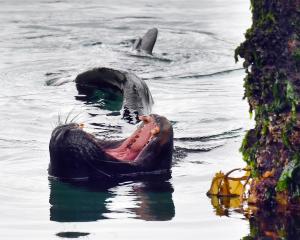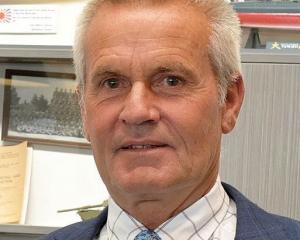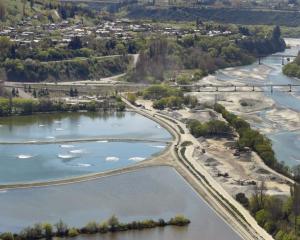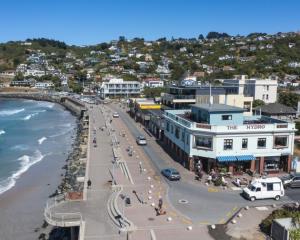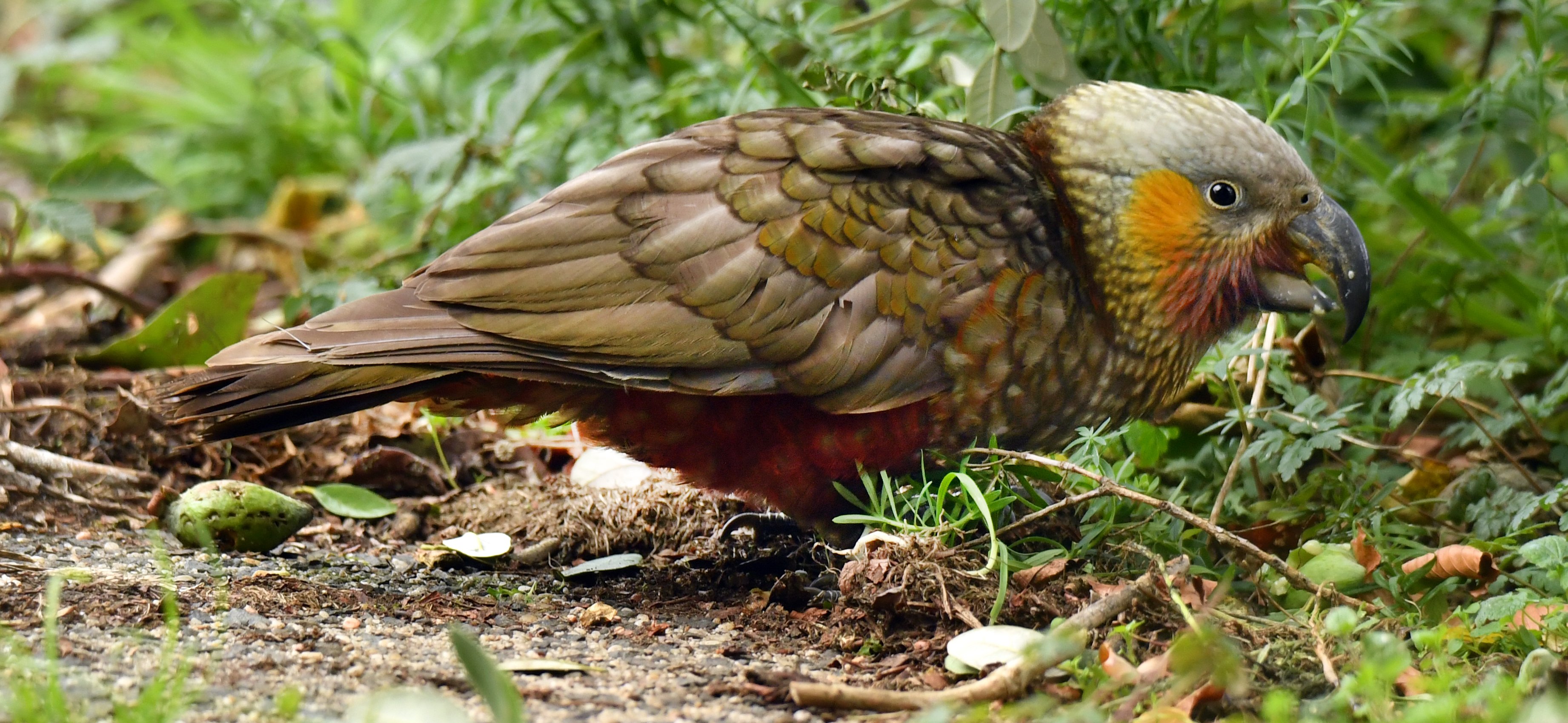
Like parents wringing their hands, watching their toddlers learn to ride a bike, Orokonui Ecosanctuary staff are also anxious, watching as their kākā attempt to survive in "the real world".
Orokonui Ecosanctuary general manager Amanda Symon was concerned when confronted by a photo of a cat stalking a kākā while it ate feijoas, in Maitland St, Dunedin yesterday.
Many kākā have been reported flying around the greater Dunedin area in recent weeks after leaving the ecosanctuary.
The facility had reached capacity in terms of kākā, and they were now spreading their wings and naturally dispersing to find their own spaces outside the fence.
So far, they have been spotted in the Dunedin, Mosgiel, Warrington and Waitati areas.
Staff at the ecosanctuary said there was good evidence to show the birds had been breeding on the outside, too.
However, the birds were not prepared to fend off predators such as cats and dogs, Ms Symon said.
"They’re vulnerable to domestic pets, definitely.
"With a domestic pet, it is important to be aware that they pose a threat to kākā, and if you have a kākā in your backyard, then control your pets."
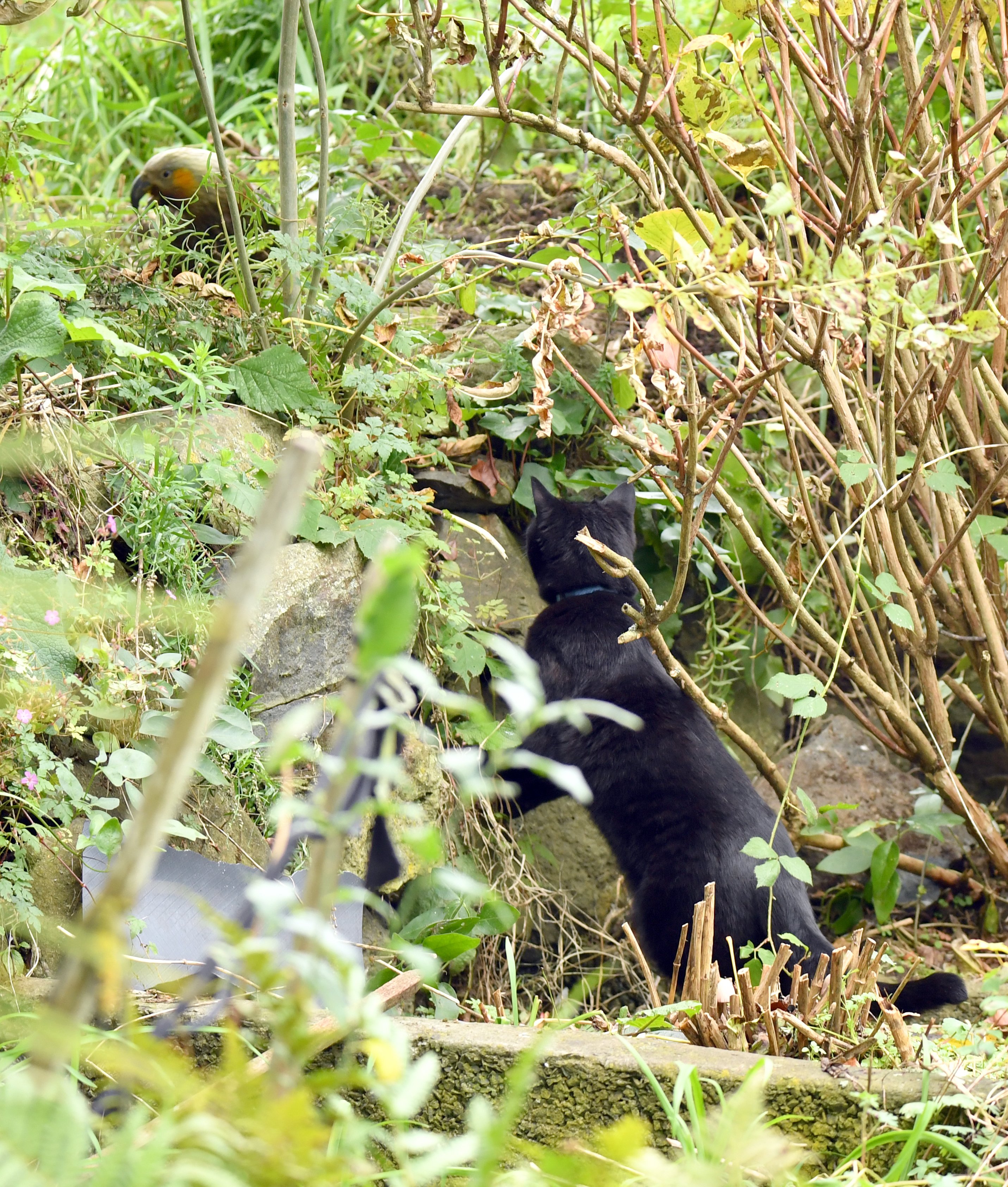
She believed it was unlikely kākā would learn from confrontations with cats or dogs over time.
"Potentially, their first interaction with a cat or dog will be a fatal one, so it’s difficult to learn from that.
"They’ve lived in a predator-free environment, so they’re coming from Orokonui, naive to that sort of interaction."
Fortunately, the kākā in the photo flew off moments before the cat could strike, and she was relieved to hear it survived the encounter.
Kākā are skilled at finding food in spaces that are healthy for them, but they can also be harmed by encounters with foreign foods and objects.
Ecosanctuary staff urged Dunedin residents to support the parrots by not offering food or sugar water; avoiding socialising with them; keeping pets inside; engaging in habitat regeneration of native plants; and improving predator control such as traps for rats, stoats, ferrets and weasels.
Ecosanctuary operations manager Elton Smith was delighted to see they were surviving on their own, outside the boundaries of the ecosanctuary.
"It is really good news. It’s a sign that the population is increasing."
He believed they would become a much more frequent sight around the Dunedin area in coming years, as the outside population grew.

